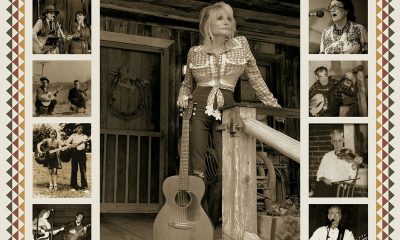Music & Concerts
An evening with Culture Club
Founding guitarist Roy Hay says the band is looking ahead
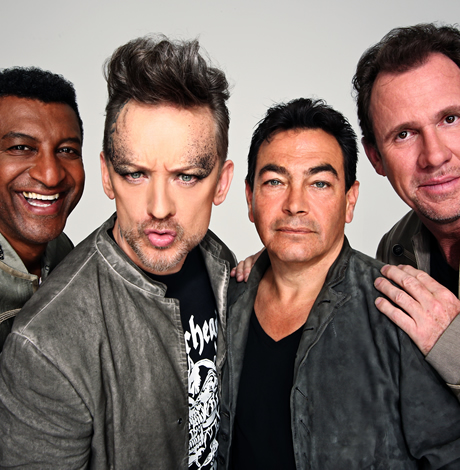
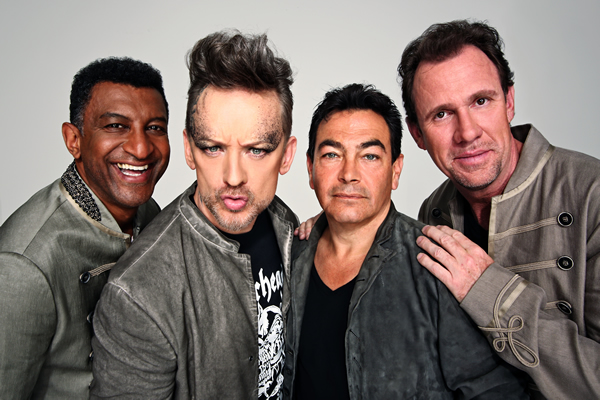
Culture Club is (from left) Mikey Craig, Boy George, Jon Moss and Roy Hay. The band’s current tour marks the first time they’ve toured in more than a decade. (Photo by Dean Stockings)
Culture Club
Monday, Aug. 10
8 p.m.
$30-60
Filene Center
1551 Trap Rd.
Vienna, Va.
A reunited Culture Club brings its summer North American tour — its first here in 12 years — to Wolf Trap on Monday, Aug.10. The band, famous for ‘80s classics like “Karma Chameleon” and “Do You Really Want to Hurt Me” has regrouped after postponing a tour last fall when lead singer Boy George suffered a throat ailment. A new album called “Tribes” is slated for fall.
We spoke with guitarist Roy Hay by phone from New York last week as he was en route to their show that night at the Grand Theater in Mashantucket, Conn. His comments have been slightly edited for length.
WASHINGTON BLADE: How does it feel to be out with the band again?
ROY HAY: It was a little frustrating to have the false starts but now that we’re up and running it feels great. I have to say, the response from the audience has been beyond my wildest dreams, to be quite honest. It’s just been fantastic. A really magical moment actually.
BLADE: Has all the bad blood of old been laid to rest or do little frictions still flare up?
HAY: I wouldn’t say bad blood, but to be honest, George is not always the easiest person. As Keith (Richards) said about Mick (Jagger), he has an LSD problem — lead singer disease. So there’s been a bit of that going on, but I haven’t gone to his room and punched him like Keith would have done but you know, it’s OK. George is a bit of a perfectionist and particularly as he’s had his own thing going on for so long, to now be in the culture of a band again instead of being the focal point of his entire universe has been a bit of a challenge for him. Which is true for all of us, because we’ve all been doing our own thing. But for him, being out there DJing, which is a very isolated pursuit, and doing his solo thing for the past two years, you’re sort of the captain of your own ship, so now to suddenly be part of a democratic process is somewhat challenging for him. So if you bear all that in mind, it all makes sense.
BLADE: George has said the other members are all “kind of” straight. Do people get that or has there always been a perception that Culture Club was a gay band?
HAY: Well I like to think that people know but I have ended up in quite awkward situations socially with this sort of, “Oh God, I thought you were gay.” And I’m like, “No, go back and put your clothes on and take that pink ribbon off your penis.” (laughs) I’m not kidding — that will be in the book.
BLADE: How are you keeping this tour from being an exercise in “nostalgia purgatory” as George puts it?
HAY: For us, the life blood of being in a band is being four guys in a room making music and writing songs, so what’s good about this is that we’re playing new songs and we’re slotting them in with the old ones and it’s like people aren’t even noticing because there’s a certain familiarity about the way we write. So by the second chorus, we’ve got the whole place dancing to the new songs. Part of the reason we’re doing this right now without the new album out yet is to kind of restore our reputation a little bit live and get people to realize, “God, they’re a good band, I’d forgotten.” We got a little bit forgotten over the years. Obviously it’s our own fault, we haven’t worked. So I think we needed to come out and do a little bit of damage limitation if you like. And particularly after the last tour got canceled because of George’s vocal issues, we really wanted to come back out and get the band back out there a bit, so then when we do come out with the album and the big tour next year, people will be more willing to come along. It’s never been a sort of “Danny Collins”-type thing for us where he gets trapped into just playing his hits for like 30 years and the money is so good and the fame is so big, he can’t stop. It’s not about that for us. If it was, we’d just put the four of us on stage and run pro tools, but we have a 13-piece band and we’re playing live and rocking the hell out of it, so I think people really appreciate that.
BLADE: The new album is done?
HAY: It is, it’s in the can and I think we’ve made a great album. It’s the album we should have made in 1986 after “Colour by Numbers” but we had that third album syndrome and didn’t have anything to write about but now we … have a lot more musical ideas. It’s ready to go but we really want to pick our release date and plan things properly so when we do come with it, it doesn’t just go to album heaven. Obviously we don’t expect to sell 10 million copies again, but we’d like to at least get it out to the people who would like to buy a Culture Club record. There was a great quote in one of the reviews last year — we briefly had a single out that kind of got withdrawn when the tour got cancelled — but it said this would be a number one record if bands like Culture Club were allowed to have number ones. The point is we feel we should be allowed to have number ones, so we want to clear the way and try to make that happen. Not from any other point of view than we’ve written some damn good songs, some damn good tunes and you could stick them on the radio next to Bruno Mars and it would work. It’s going to be a hard job, but you never know.
BLADE: “From Luxury to Heartache” now kind of feels like the forgotten Culture Club album. How do you feel it’s held up or not held up?
HAY: For me, that was always one of our finest works. I always wanted to work with (producer) Arif (Mardin). … May he rest in peace. He was really a magical man to work with. I learned so much from Arif that helped me move on in my life and with other projects, producing and songwriting and going into commercials, film and television. It was just a study in classic producing and the life lessons from that man were amazing as well. I don’t know necessarily if he was the best producer for the band. He was used to working with the Arethas and the Chaka Khans, even the Bee Gees in a way, they just come in and do their vocals and you know Barry does his thing with the music. I don’t know of he caught the band on that album but the songs were good, man. There were some good songs on that album. … “I Pray” and “God Thank You Woman.” I’m proud of all our work over the years. Even “Don’t Mind If I Do” (1999), I thought had some good moments as well.
BLADE: Have you sensed Culture Club fans want new material?
HAY: Well I hope they do because they’re getting it. I think they want it if it’s the right new material. … This band would never last on the nostalgia line. There’s too much artistic integrity with its members. If it were only that, we wouldn’t do it. I’d rather go off and do another TV show or do movies, George would rather do his solo thing. The spark and writing new songs is really the life’s blood of this band.
BLADE: So do you roll your eyes when you see the Stones or Fleetwood Mac going back out every few years and their last albums were 10 or 15 years ago?
HAY: I don’t know really. Build it and they will come, I guess, you know? As long as people keep coming, they’re going to keep going out. There’s obviously a magic with the Rolling Stones. I’m reading Keith’s book right now and I get it. It’s a very different style of music, but it’s the same way they started in a basement in London just playing records and we were much the same way. We were in a rehearsal studio in Shepherd’s Bush listening to records and John was really a driving force back in those days. George wanted us to be the next Bow Wow Wow and John said, “No, let’s write some real songs,” so we were playing everything from ABBA to Booker T & the M.G.’s and we really got into songwriting and became Culture Club during that stage. We really just lived and breathed music. … It was a magical time. You never get that back, but we have tried.
Music & Concerts
Washington chorale kicks off Christmas with vibrant program
‘Thine Own Sweet Light’ concerts planned
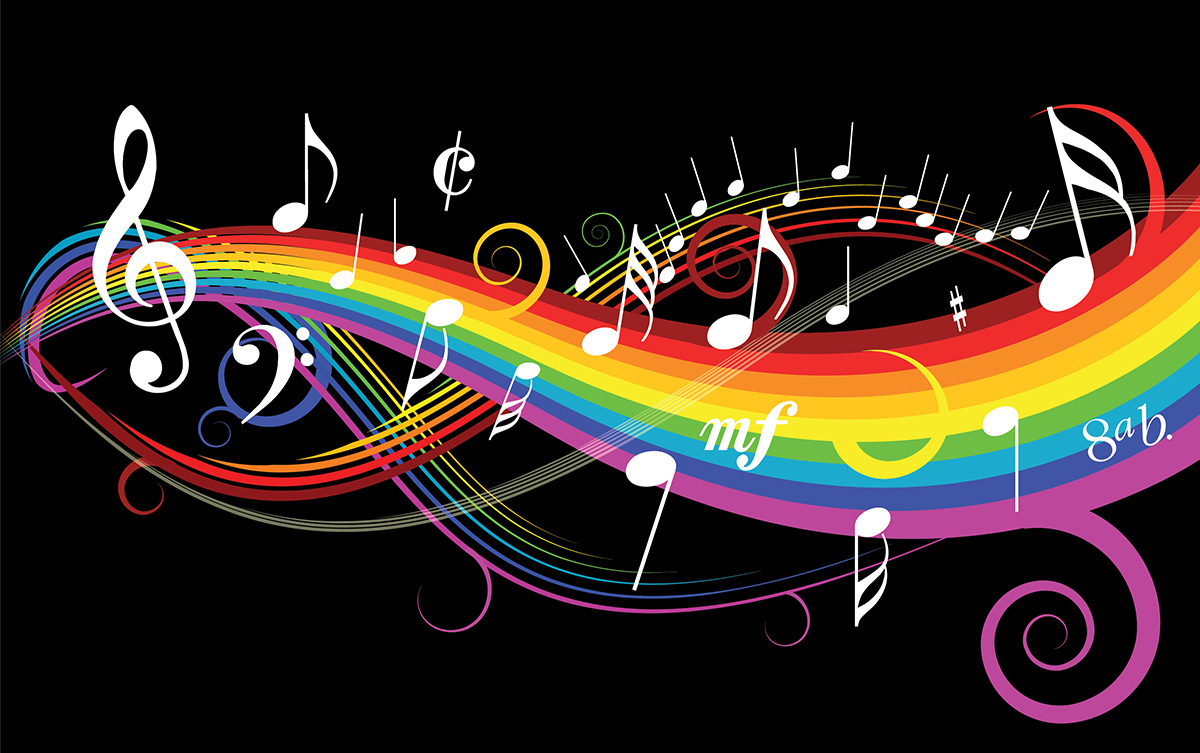
The full Washington Master Chorale will return for its annual holiday concert tradition with “Thine Own Sweet Light” on Friday, Dec. 19 and Sunday, Dec. 21 at St. Ann’s Catholic Church (D.C.) and Church of the Epiphany (D.C.).
The concert will feature the rich sounds of the 50-voice, a cappella chorus performing lush, seasonal choral music inspired by the theme of light. Highlights include Edvard Grieg’s “Ave Maris Stella,” Eric Whitacre’s “Lux Aurumque,” and Christopher Hoh’s “Holy, Holy, Holy is the Lord God of Hosts.” The program will also present a new work by Barcelona composer Josep Ollé i Sabaté, along with charming holiday folk songs and seasonal favorites.
For more details, visit the Washington Master Chorale website.
Music & Concerts
Queer mega stars (and allies) ready to take D.C. stages this fall
Watch LGBTQ icons light up stages across the DMV as they sing, dance, and drag their way through spectacular shows.
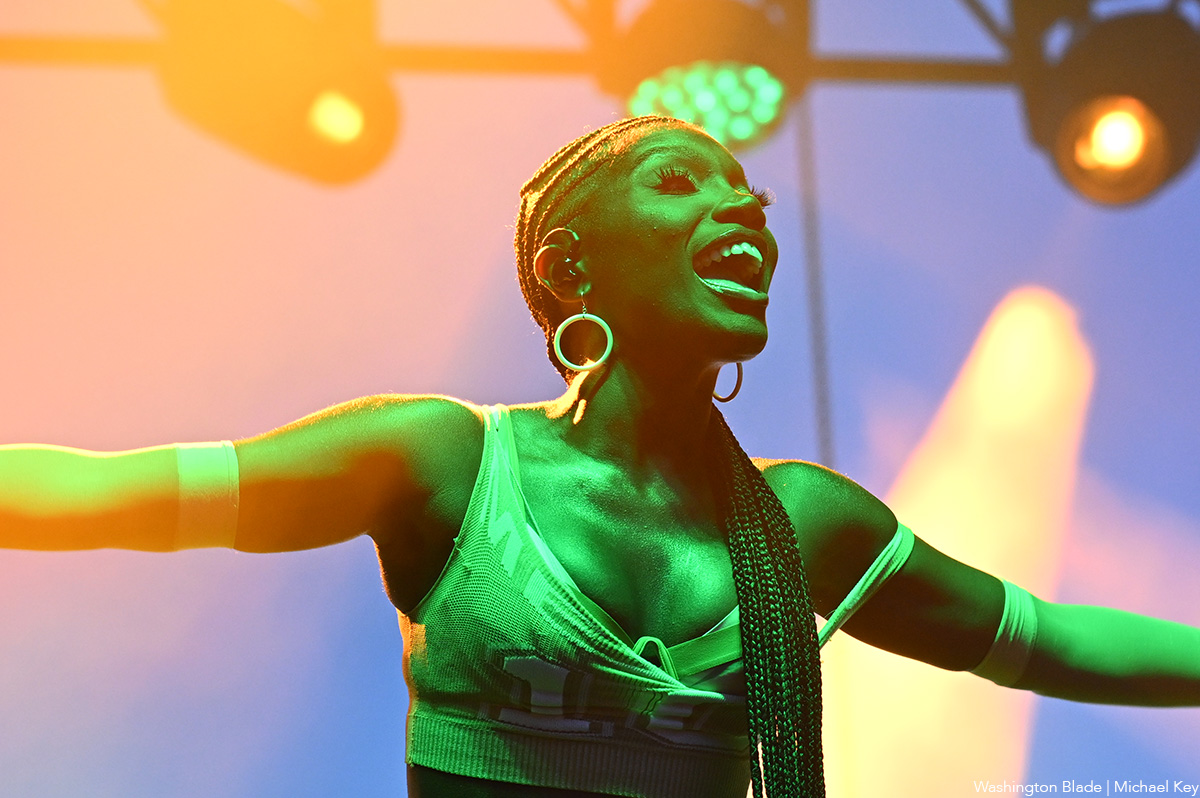
One of the best ways to welcome fall is by catching LGBTQ performers (and their allies) lighting up some of the D.C. area’s biggest stages. From country and pop to drag and rock, the season is packed with shows you won’t want to miss.
Maren Morris – The country, rock, and pop diva—known for hits like “The Bones” and for standing up against Nashville’s anti-LGBTQ voices—takes the stage at Wolf Trap (1551 Trap Rd, Vienna, Va.) on Friday, Sept. 12 at 8 p.m. Tickets start at $64.
RuPaul – The mother of modern drag and host of “RuPaul’s Drag Race” will spin a DJ set at Echostage (2135 Queens Chapel Rd NE) in Northeast D.C. on Sept. 20. Before RuPaul swaps wigs for headphones, Trade and Number 9 owner Ed Bailey will warm up the decks. For tickets and details visit echostage.com.
Conan Gray – The queer pop prince, celebrated for his Gen Z anthems like “Heather” and “Maniac,” brings his Wishbone Pajama Show to EagleBank Arena in Fairfax, VA, (4500 Patriot Cir) on Sept. 20 at 8 p.m. Tickets start at $113. For more info visit shop.conangray.com/pages/tour.
All Things Go Music Festival – With a lineup that includes Noah Kahan, Lucy Dacus, Kesha, Clairo, Doechii, and more, the beloved LGBTQ-friendly festival takes over Merriweather Post Pavilion (10475 Little Patuxent Pkwy, Columbia, Md.) Sept. 26–28. For tickets and details visit allthingsgofestival.com.
BERTHA: Grateful Drag – This unique tribute brings drag artistry and the sounds of the Grateful Dead to The Atlantis (2047 9th St NW) on Sept. 27. Tickets start at $47 at theatlantis.com.
Peach PRC – Rising Australian pop star and out lesbian, whose confessional tracks like “Perfect for You” and “Forever Drunk” have made her a queer TikTok darling, performs at The Atlantis on Sept. 29 at 6:30 p.m. The show is general admission only. Additional details are on theatlantis.com.
Addison Rae – The TikTok star-turned-pop princess, who’s crossed over into music with glossy hits like “Diet Pepsi” brings her sold out show to The Anthem (901 Wharf St., S.W.) on Sept. 30. Tickets are sold out, but resale options start around $80. For more info visit theanthemdc.com.
The Rocky Horror Picture Show 50th Anniversary – Celebrate the cult classic that’s been a queer midnight-movie staple for decades, with Barry Bostwick (a.k.a. Brad Majors) at the Warner Theatre (513 13th St., N.W.) on Oct. 2 at 8 p.m. Tickets start at $41 via Ticketmaster.
Chaka Khan, Patti LaBelle, Gladys Knight & Stephanie Mills – Four legends, one stage. Between Khan’s funk, LaBelle’s soul, Knight’s R&B, and Mills’ powerhouse vocals, this concert at Capital One Arena (601 F St NW) on Oct. 3 at 8 p.m. promises pure diva magic. Tickets start at $103. For more details visit capitalonearena.com.
Lorde – Joined by The Japanese House and Chanel Beads, the Grammy-winning New Zealand singer-songwriter behind “Royals” and “Solar Power” returns to The Anthem on Oct. 4 at 7 p.m. Lorde has long been embraced by queer fans for her dreamy pop and subversive lyrics. For more info visit theanthemdc.com.
Andy Bell (of Erasure) – The British queer rock icon, best known for synth-pop classics like “A Little Respect” and “Chains of Love,” brings his Ten Crowns Tour to the Lincoln Theatre (1215 U St., N.W.) on Friday, Oct. 17 at 8 p.m. Tickets are $90.45.
Doechii – The self-described queer “Swamp Princess”—and WorldPride 2025 headliner—continues her breakout year with the Live from the Swamp Tour at The Anthem on Oct. 21 at 8 p.m. Known for blending rap, R&B, and avant-garde performance art, Doechii is one to watch. Tickets start at $153.
Neon Trees – The out-and-proud Utah rockers behind “Everybody Talks” and “Animal” perform at the Lincoln Theatre on Friday, Oct. 24 at 8 p.m. Lead singer Tyler Glenn, who came out publicly in 2014, has become a strong queer voice in alternative rock. For tickets and info visit impconcerts.com.
Sasha Colby – The “RuPaul’s Drag Race” Season 15 winner strips down on the Stripped II Tour at the Warner Theatre on Nov. 2 at 8 p.m. Tickets available now on Ticketmaster.
Lola Young – The bisexual indie-pop sensation, whose raw songwriting has earned her millions of TikTok fans and multiple chart soaring hits visits The Anthem on Nov. 9 at 8 p.m. Tickets are still available.
Opera Lafayette
Featuring Mary Elizabeth Williams as Dido
+ Elijah McCormack, Chelsea Helm
Oct. 16, 7:30 p.m.
Sixth & I
PostClassical Ensemble
The Pale Blue Do: A Musical Voyage Inspired By Nature
Featuring National Geographic’s Enric Sala, Guest Curator
Wednesday, November 19, 7:30 p.m.
Terrace Theater
Washington Concert Opera
Starring Kate Lindsey, Theo Hoffman, John Moore, and Fran Daniel Laucerica
Nov. 23, 6 p.m.
Lisner Auditorium
Washington Master Chorale
An intimate a capella concert taking place in an architectural jewel, featuring cherished choral gems from Anglican and Catholic tradition and early American hymns. The concert will also present the world premiere of Christopher Hoh’s Holy, Holy, Holy is the Lord God of Hosts, and hymn singing featuring Robert Church, organist and choirmaster at St David’s.
Oct. 18, 7:30 p.m.
October 19, 5 p.m.
St. David’s Episcopal Church
Music & Concerts
Cyndi Lauper ready to have fun in Virginia
Superstar to bring final leg of farewell tour to Jiffy Lube Live
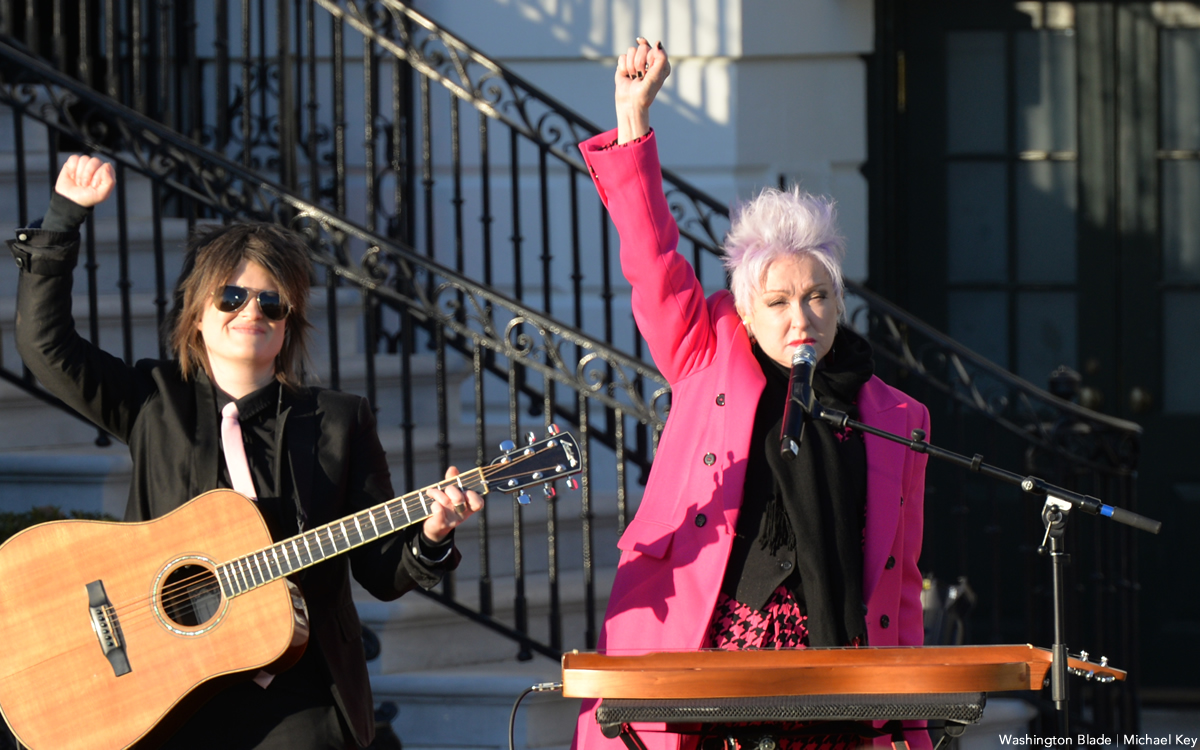
Superstar Cyndi Lauper will bring the final leg of her farewell tour “Girls Just Wanna Have Fun” to Bristow, Va., on Thursday, July 24 at Jiffy Lube Live.
Lauper’s international Farewell Tour – her first major headlining run in a decade – kicked off in North America last October, and included her first time ever headlining (and selling out) Madison Square Garden. Lauper’s performances have earned raves from the New York Times, Rolling Stone, Billboard, and many more, and surprise guests have included Chaka Khan, Sam Smith, and Hayley Williams. The tour just visited the U.K. and Europe, and will head to Australia and Japan in April.
Tickets are available on Live Nation’s website.

